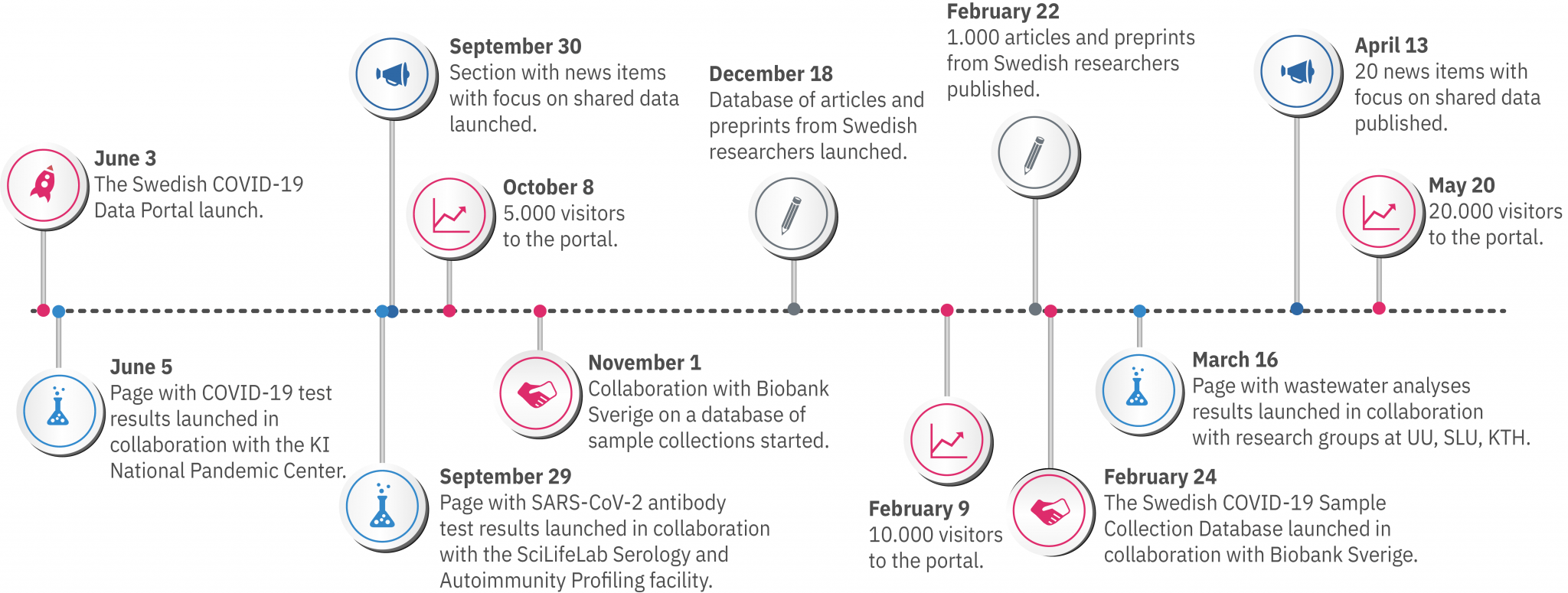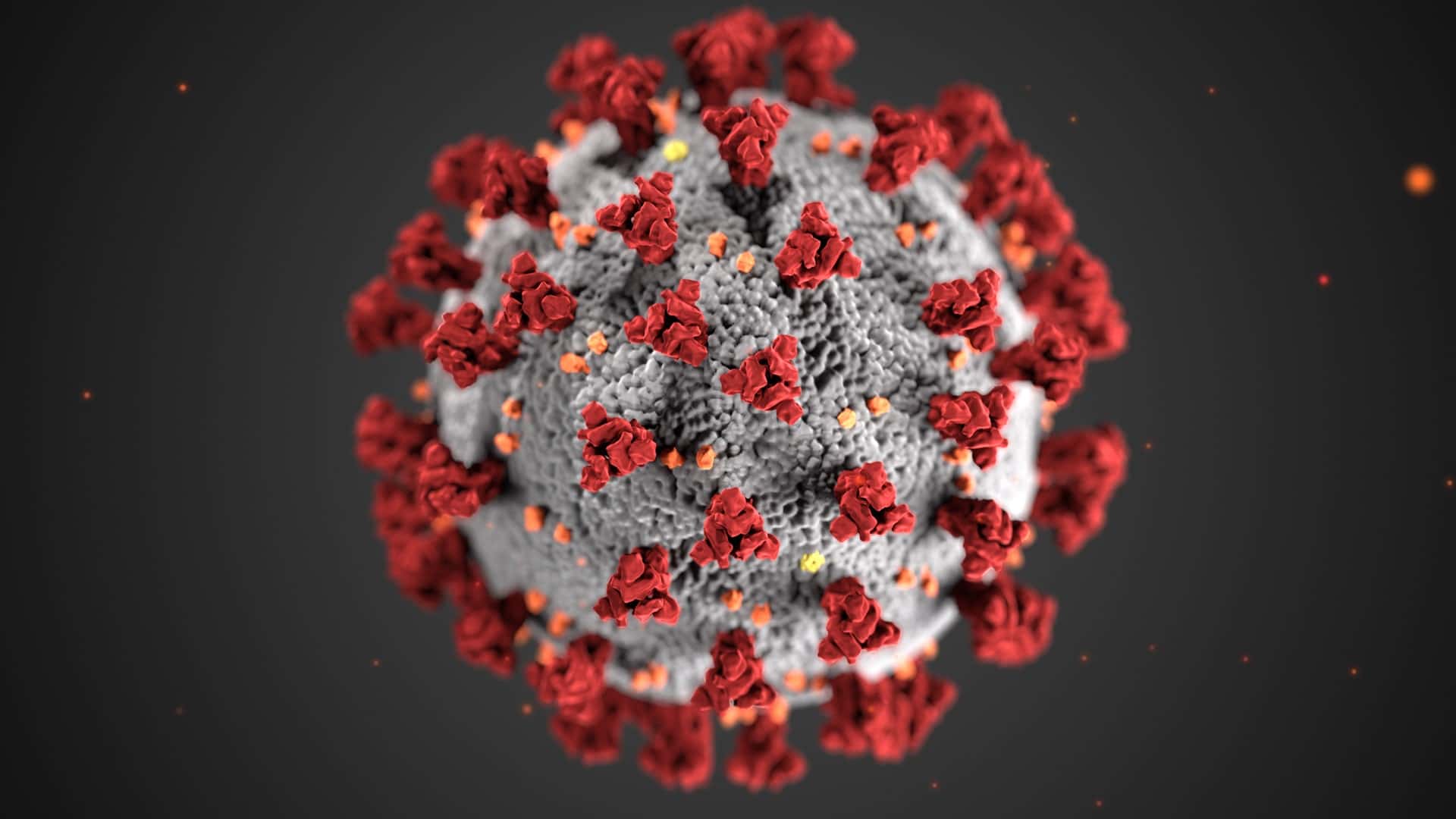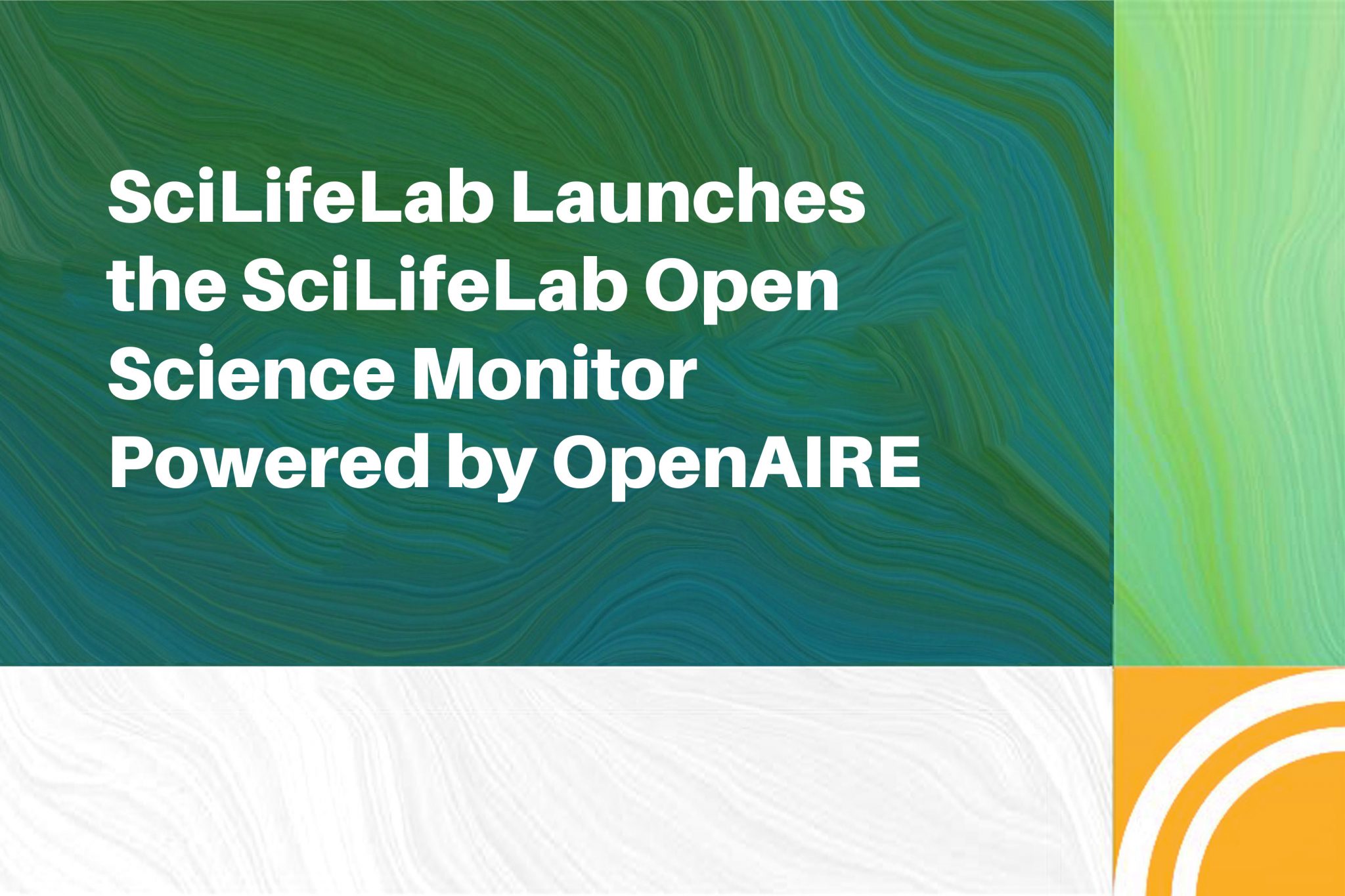The national COVID-19 Data Portal at year one: achievements and future plans
The COVID-19 pandemic has caused a global health crisis, and in many ways also changed the way research is conducted. Openly sharing data and code, data reuse and collaborations have proven to be important tools for the rapid pace of research over the last year and half. Data sharing also provides transparency and enhances the reproducibility of the research. The national Swedish COVID-19 Data Portal, launched a year ago on June 3rd, is an important part of this effort.
In the spring of 2020, the European Commission took the initiative to develop a European data sharing platform, operated by the European Molecular Biology Laboratory – European Bioinformatics Institute (EMBL-EBI). One year ago, June 3rd 2020, the Swedish COVID-19 Data Portal was the first national portal to be launched as a part of that platform. It offers services, tools, and guidelines for scientific data sharing to all researchers in Sweden. Since the start, the Data Portal has had over 20,000 users and is today used by researchers, healthcare, public and media. The Data Portal has also provided direct support to a wide range of research projects.
“Internationally and nationally, the Swedish COVID-19 Data Portal has received a very good response during the first year of service. Thanks to the Data Portal, we have established collaborations with a network of organizations working on open data sharing in other countries, as well as with the large European infrastructures”, says Johan Rung, Head of SciLifeLab Data Centre.
Moving forward, the COVID-19 Data Portal will build on the features already developed and made available during the first year but also develop new features.
“Just as the societal response to the pandemic is currently in the process of moving towards vaccines and future pandemic preparedness, the Data Portal will develop new features to meet the new needs. Engaging the community is an important part of the work we do on the Data Portal. The COVID-19 Data & Code Reuse Competition where we invite researchers or the public to prepare small projects making use of publicly shared data and/or code to combat the COVID-19 pandemic or any future pandemics is part of this work. We are very thankful to the researchers who choose to share their data and code to raise the impact of their work but also to address reproducibility and to make the information available to enable new analyses, leading to new results and new knowledge. Our aim is to further improve our support to the important community efforts responding to this pandemic”, continues Johan Rung.
Here follows a throwback to some of the major highlights during the first year of service. All code developed for the Data Portal has been shared on GitHub under an open source license.
• The Swedish COVID-19 Sample Collection Database is a service, set up by SciLifeLab in collaboration with Biobank Sweden, that enables researchers and clinicians to share about sample collections and biobanks across Sweden. The database contains to-date 16 biobanks and 29 sample collections from both healthcare and academic institutions.
• For an overview of the Swedish COVID-19-related research output, the team behind the Data Portal set up the Swedish Covid-19/SARS Cov-2 Publications Database. The database is manually curated and comprises all published COVID-19-related research articles where at least one co-author is affiliated to a Swedish university or institute (N= 1386 publications, 2021-05-31). In addition, discipline-specific data tables listing articles openly sharing data and/or code are shown.
• The Data Portal also displays COVID-19 related statistics for example weekly SARS CoV-2 antibody testing results from the SciLifeLab Autoimmunity and Serology profiling unit, Karolinska Institutet, Another section that has attracted large attention is presenting SARS CoV-2 virus levels in wastewater samples for various Swedish cities, representing in total almost 2 million citizens. The research groups behind these data are part of the Environmental Virus Profiling Research Area within the SciLifeLab and KAW National COVID-19 Research Program.
• The “Data Highlights” is another popular section that promotes newly published research articles that share COVID-19 data openly adhering to FAIR-principles, or reuse previously published data. The section has over the last year promoted many of the important contributions to COVID-19 research carried out by SciLifeLab affiliated research groups.

The Swedish COVID-19 Data Portal has been developed and is operated by the SciLifeLab Data Centre and partners on assignment from the Swedish Research Council. It is located at https://www.covid19dataportal.se, and funded by SciLifeLab and the Swedish Research Council. The portal to the joint European COVID-19 data platform is located at https://www.covid19dataportal.org.





